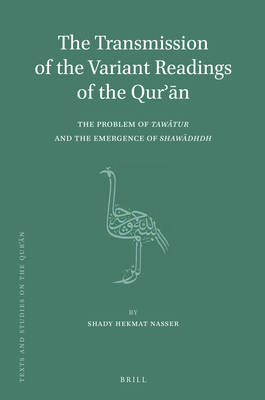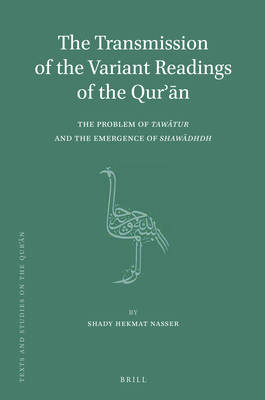
- Afhalen na 1 uur in een winkel met voorraad
- Gratis thuislevering in België vanaf € 30
- Ruim aanbod met 7 miljoen producten
- Afhalen na 1 uur in een winkel met voorraad
- Gratis thuislevering in België vanaf € 30
- Ruim aanbod met 7 miljoen producten
Zoeken
The Transmission of the Variant Readings of the Qurʾān
The Problem of Tawātur and the Emergence of Shawādhdh
Shady Nasser
€ 244,45
+ 488 punten
Omschrijving
This work is a study of the transmission of the variant readings of the Qurʾān, the canonization of the system Readings, and the emergence of the non-canonical shawādhdh readings. Nasser argues that Ibn Mujāhid and the early Muslim scholars viewed the variant readings as legal rulings aḥkām and that the later generation of Qurrāʾ were responsible for moving the discipline of Qirāʾāt from the domain of fiqh to the domain of Ḥadīth. After studying the theories of tawātur in detail, Nasser shows that the transmission of the system Readings of the Qurʾān failed to meet the conditions of tawātur set by the Uṣūlīs, thus creating a paradox between the transmission of the physical text, the muṣḥaf, and the transmission of its oral recitation, the "Qurʾān".
Specificaties
Betrokkenen
- Auteur(s):
- Uitgeverij:
Inhoud
- Aantal bladzijden:
- 264
- Taal:
- Engels
- Reeks:
- Reeksnummer:
- nr. 9
Eigenschappen
- Productcode (EAN):
- 9789004240810
- Verschijningsdatum:
- 9/11/2012
- Uitvoering:
- Hardcover
- Formaat:
- Genaaid
- Afmetingen:
- 160 mm x 241 mm
- Gewicht:
- 544 g

Alleen bij Standaard Boekhandel
+ 488 punten op je klantenkaart van Standaard Boekhandel
Beoordelingen
We publiceren alleen reviews die voldoen aan de voorwaarden voor reviews. Bekijk onze voorwaarden voor reviews.








